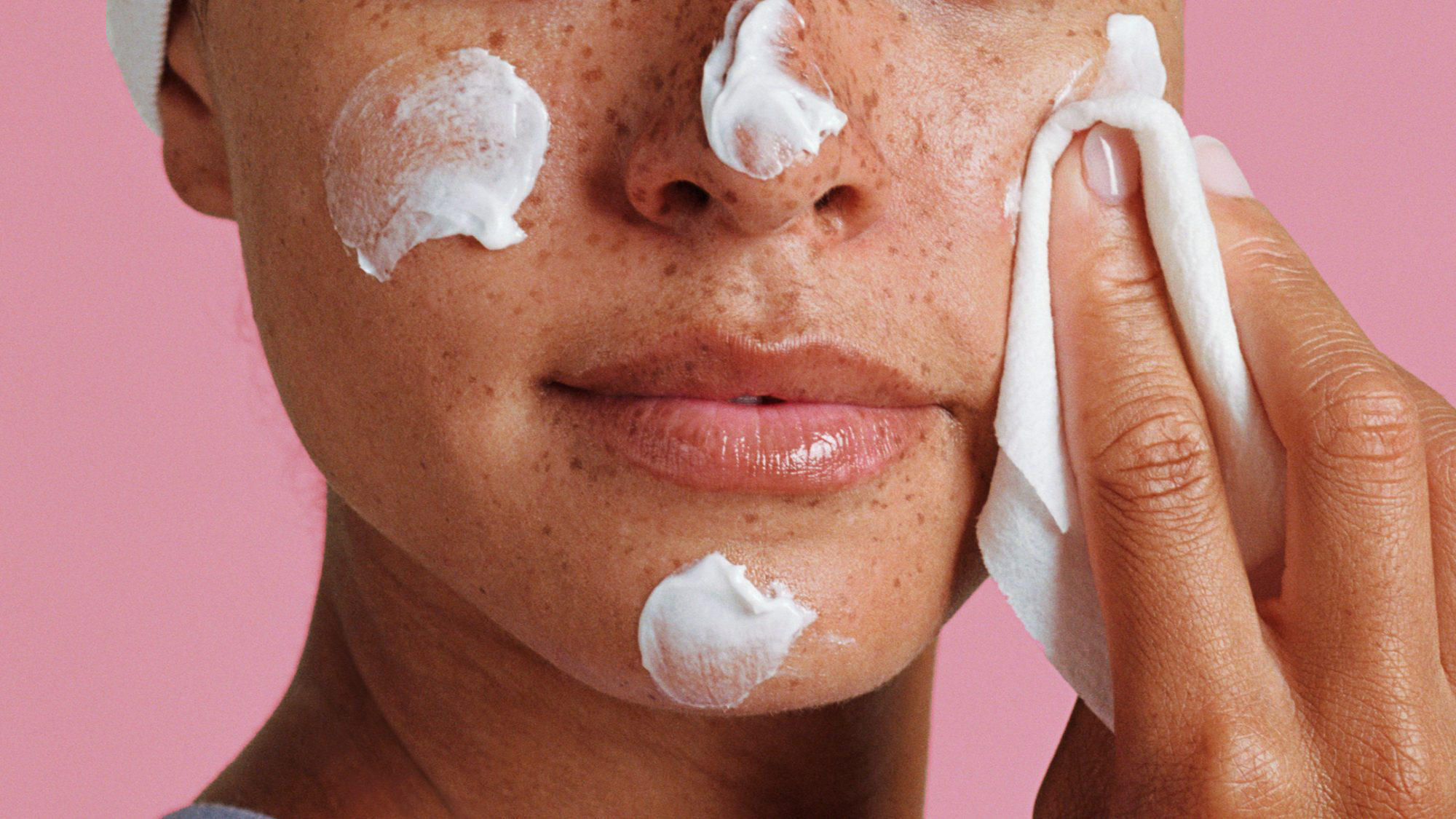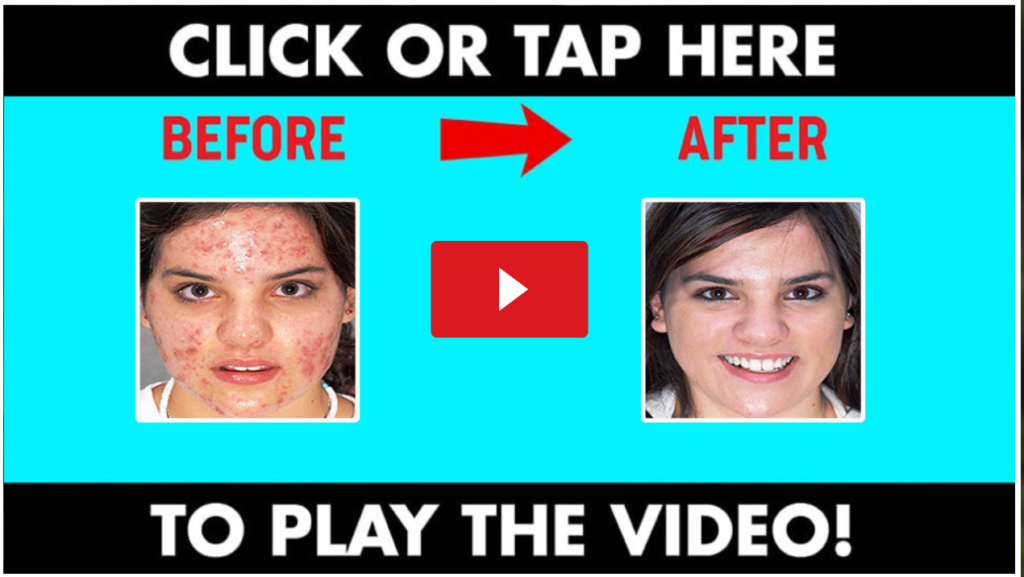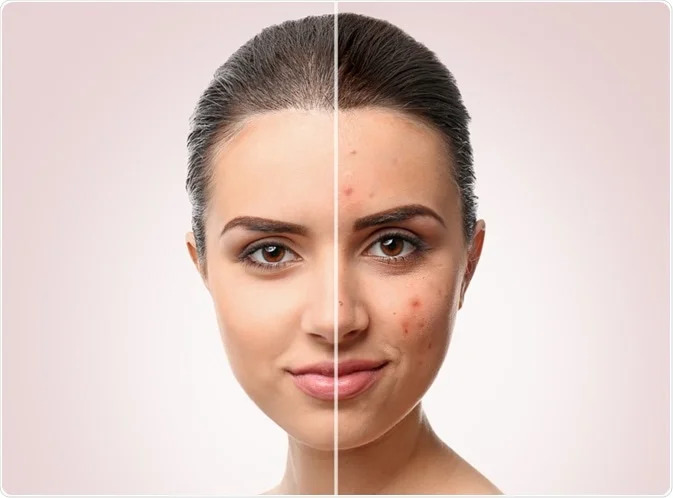- Maintain a clean face.
Whether you have acne or not, it is critical to wash your face twice daily to eliminate pollutants, dead skin cells, and excess oil from the skin’s surface. Washing more than twice a day is not always preferable; it may cause more harm than good. Warm, not hot, water and a gentle facial cleanser are recommended. Using a strong soap (such as deodorant body soap) might irritate already irritated skin.
Scrubbing your skin with a washcloth, exfoliating glove, or loofah should be avoided (a coarse-textured sponge). Wash it gently with a soft towel or your hands. Always rinse thoroughly before patting your skin dry with a clean cloth. (Place the towel in the laundry basket because filthy towels transmit bacteria.) Also, only use the washcloth once.
- Apply moisturizer.
Many acne products contain drying components, so always apply a moisturizer that reduces dryness and skin peeling. On the label, look for the words “noncomedogenic,” which means it should not cause acne. Moisturizers are available for oily, dry, or mixed skin.
- Use an over-the-counter acne treatment.
These acne treatments do not require a prescription. Most of them contain substances like benzoyl peroxide, salicylic acid, glycolic acid, or lactic acid, which kill bacteria while also drying up your skin. They may cause drying or peeling, so begin with a tiny amount. Then you can control how much and how frequently you use it. A new OTC topical retinoid gel is another option (Differin 0.1 percent gel). It genuinely works to prevent acne from occurring. If you have sensitive skin, use these items with caution. - Apply cosmetics sparingly.
Avoid wearing foundation, powder, or blush during a breakout. If you do apply makeup, make sure to remove it at the end of the day. Choose oil-free cosmetics with no additional colours or chemicals if feasible. Choose makeup that is “noncomedogenic,” which means it should not aggravate acne. Before purchasing, read the ingredient list on the product label. - Take care with what you put in your hair.
On your hair, avoid using scents, oils, pomades, or gels. They can clog your pores and irritate your skin if they get on your face. Make use of a mild shampoo and conditioner. Oily hair can contribute to the oil on your face, so wash it frequently, especially if you’re breaking out. Do you have long hair? Maintain it away from your face. - Keep your hands away from your face.
Avoid touching your face or using your hands to prop up your cheek or chin. You can not only spread bacteria, but you can also irritate already inflamed facial skin. Picking or popping pimples with your fingers can cause infection and scars.
- Avoid direct sunlight.
UV radiation from the sun can produce inflammation and redness, as well as post-inflammatory hyperpigmentation (dark discoloration). Some acne drugs may make your skin more photosensitive. Wear protective clothes, such as a long-sleeved shirt, slacks, and a broad-brimmed hat, and limit your time in the sun, especially between 10 a.m. and 4 p.m. Apply a broad-spectrum sunscreen with 6 percent zinc oxide or higher and SPF 30 or higher at least 20 minutes before sun exposure, whether you have pimples or not. To reduce the likelihood of new pimples, look for the term “noncomedogenic” on the sunscreen label. Read the product label to find out what you’re putting on your skin. - Take care of your skin.
Most dermatologists believe that certain foods, such as chocolate, do not cause pimples. Still, it makes sense to avoid oily foods and junk food while increasing your intake of fresh fruits, veggies, and healthy grains. Acne may be exacerbated by dairy products and diets heavy in processed sugar. These should be avoided. - Engage in everyday exercise.
Regular exercise benefits your entire body, including your skin. When exercising, avoid wearing clothing or utilizing exercise equipment that may irritate your skin. Following exercise, take a shower or bath. - Chill!
Some studies have found a correlation between stress and the severity of pimples or acne. Consider what is causing you to be stressed. Then search for solutions.
Already tried all these things and still can’t get rid of acne? Try a solution clinically proven 5-step multi-dimensional clear skin system that has been polished and perfected over 13 years of research, trial, and error. By Clicking here


